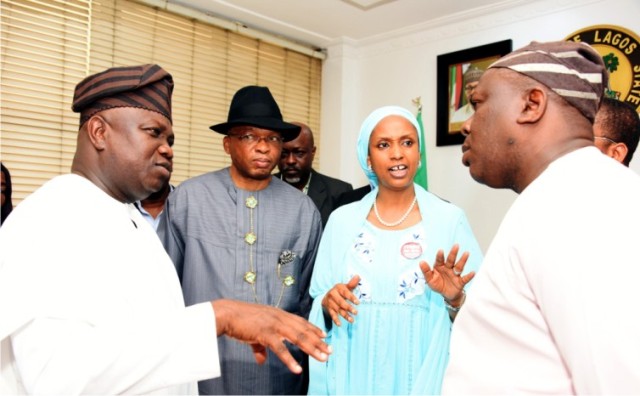Business
Housing Investment: W’ Bank Tasks FG On Conducive Environment

Lead Financial Sector
Specialist, Finance and Markets, World Bank Group, Mr. Simon Wally on Wednesday said that Nigeria needed to boost housing development by facilitating an environment conducive for investors.
Wally made the observation at the 32nd Annual Conference and General Meeting of the African Union for Housing Financing (AUHF) in partnership with Nigerian Mortgage Refinance Company (NMRC) in Abuja.
The three-day conference with theme as “Housing and Africa’s Growth Agenda’’, is being organised by Fesadeb Communications Ltd., convener of Annual Abuja Housing Show and producer of Housing programmes on television.
Wally said Nigeria had the necessary capital to finance the provision of affordable housing and did not need capital from other countries to finance affordable housing.
“You do not need capital from outside of Nigeria, looking at the level of investment required; Nigerian has got more than enough capital within the country.
“Investors want to put their money into investment and housing is perfect; in that sense, long term investment is what investors are looking for.
“The country needs the right mechanism, tools and methods for turning that domestic naira investments into housing, and that needs to be done on a very large scale,’’ Wally said.
He said that the critical problem facing Africa was the rate at which the population was growing.
Wally also said that the underlying population growth rate and organisation rate combined were going to present real challenges for Africa in the next 10 to 20 years.
“The country is looking at housing needs in excess of over 150 to 200 housing units per year just to keep up with the demand.
“The problem is that the number of housing needed has not been produced at the moment for Nigeria and other countries and the result of that is informal housing or slums’’, he said.
Chief Executive Officer of NMRC, Prof. Charles Inangete, explained that housing was paramount to the national economy, adding that Nigeria had an outdated housing data.
“We are still talking of 17 million housing deficit, a data which was created four years ago; we need more current data in order to make housing policy more relevant,” he said.
Mr Thierno-Habib Hann, Senior Housing Finance Regional Lead, International Finance Corporation (IFC), in a presentation , said housing finance could be expanded by making mortgage markets affordable.
According to him, financing for energy efficiency housing and potential by scaling up of small loans for home improvement and self construction can as well boost housing investment.
He listed other factors that could boost housing investment as appropriate support and targeted subsidy policies, the refocusing of government interventions and restructuring of failing housing banks.
Hann said rationalising the formalisation process of customary rights to facilitate access to land could remove housing market constraints.
The expert explained that enhancing the capacity of the land administration, starting with the support of its computerisation and low registration charges could also bridge housing constraints.
H, however, called for strengthening of developers in the industry, including land developers and synergy of real estate agents around the federation for improved housing development.
Transport
Automated Points Concession : FAAN Workers Gave 72hrs To Revise Decisions In PH

Transport
FAAN Announces Pick-Up Points for Go-Cashless Cards

Business
Fidelity Bank To Empower Women With Sustainable Entrepreneurship Skills, HAP2.0
-

 News5 days ago
News5 days agoAmend Constitution To Accommodate State Police, Tinubu Tells Senators
-

 Politics5 days ago
Politics5 days agoSenate Urges Tinubu To Sack CAC Boss
-
Business5 days ago
Crisis Response: EU-project Delivers New Vet. Clinic To Katsina Govt.
-
Business5 days ago
President Tinubu Approves Extension Ban On Raw Shea Nut Export
-

 News5 days ago
News5 days agoDisu Takes Over As New IGP …Declares Total War On Corruption, Impunity
-
Business5 days ago
President Tinubu Extends Raw Shea Nuts Export Ban To 2027
-
Business5 days ago
Fidelity Bank To Empower Women With Sustainable Entrepreneurship Skills, HAP2.0
-
Sports5 days ago
NDG: Rivers Coach Appeal To NDDC In Talent Discovery

